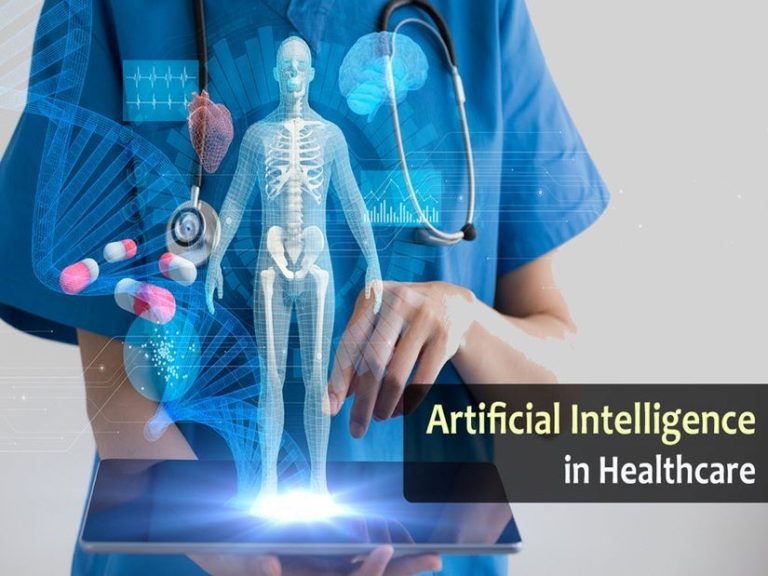Blog

How the medical field is benefiting from AI in 2021 and beyond
- AI has the ability to analyze big data sets pulling together patient insights and leading to predictive analysis.
- By 2030, AI will access multiple sources of data to reveal patterns in disease and aid treatment and care.
- Healthcare systems will be able to predict an individual’s risk of certain diseases and suggest preventative measures
- AI will help reduce waiting times for patients and improve efficiency in hospitals and health systems.
What is Artificial Intelligence in Healthcare?
Artificial Intelligence (AI) is commonly known for its ability to have machines perform tasks that are associated with the human mind like problem solving. However, what’s less understood is how AI is being used within specific industries, such as healthcare.
The healthcare industry continues to evolve as machine learning and AI in technology become more prevalent. Insider Intelligence reported that spending on AI in medicine is projected to grow at an annualized 48% between 2017 and 2023.
Machine learning has the potential to provide data-driven clinical decision support (CDS) to physicians and hospital staff paving the way for an increased revenue potential. Deep learning, a subset of AI designed to identify patterns, uses algorithms and data to give automated insights to healthcare providers.
Benefits of AI in Healthcare & Medicine
Integrating AI into the healthcare ecosystem allows for a multitude of benefits, including automating tasks and analyzing big patient data sets to deliver better healthcare faster, and at a lower cost.
According to Insider Intelligence, 30% of healthcare costs are associated with administrative tasks. AI can automate some of these tasks, like preauthorizing insurance, following-up on unpaid bills, and maintaining records, to ease the workload of healthcare professionals and ultimately save them money.
AI has the ability to analyze big data sets pulling together patient insights and leading to predictive analysis. Quickly obtaining patient insights helps the healthcare ecosystem discover key areas of patient care that require improvement.
AI-powered predictive care
AI and predictive analytics help us to understand more about the different factors in our lives that influence our health, not just when we might get the flu or what medical conditions we’ve inherited, but things relating to where we are born, what we eat, where we work, what our local air pollution levels are or whether we have access to safe housing and a stable income. These are some of the factors that the World Health Organization calls “the social determinants of health” (SDOH).
In 2030, this means that healthcare systems can anticipate when a person is at risk of developing a chronic disease, for example, and suggest preventative measures before they get worse. This development has been so successful that rates of diabetes, congestive heart failure and COPD (chronic obstructive heart disease), which are all strongly influenced by SDOH, are finally on the decline.
References
https://journals.sagepub.com/doi/10.1177/0840470419850438
https://www.nature.com/articles/s41467-021-20910-4
https://healthitanalytics.com/news/top-12-ways-artificial-intelligence-will-impact-healthcare
Recent Posts
Archives
- December 2024
- November 2024
- October 2024
- September 2024
- August 2024
- April 2024
- February 2024
- January 2024
- April 2022
- November 2021
- August 2021
- May 2021
- April 2021
- March 2021
- February 2021
- December 2020
- November 2020
- October 2020
- July 2020
- April 2020
- December 2019
- October 2019
- August 2019
- July 2019
- June 2019
- April 2019

